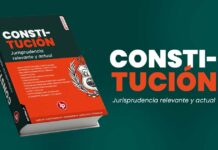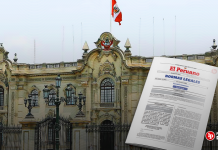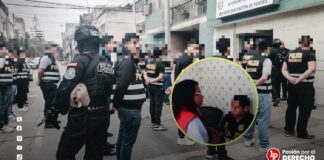Fundamentos destacados: 124. A este respecto, la Corte observa que, si bien los manifestantes comenzaron a reunirse frente a la oficina del partido BDP alrededor de las 15:00 horas de ese día, el tráfico en la carretera en cuestión no se detuvo hasta alrededor de las 16:30 horas, cuando los manifestantes se dirigían hacia la carretera (véanse los párrafos 13 y 13 y 39 supra). Además, de los informes policiales se desprende que los demandantes se incorporaron a la primera línea de manifestantes alrededor de las 16:40 horas (véase el párrafo 16 supra). Además, las imágenes de vídeo muestran que la intervención policial comenzó menos de dos minutos después de que los demandantes se incorporarán a las líneas del frente (véase el apartado 39 supra). Por lo tanto, parece que el flujo de tráfico se vio afectado solo durante un período de menos de veinte minutos antes de la intervención de la policía (compárese y contraste con Kudrevičius y otros, antes citado, § 169, donde la interrupción en tres carreteras principales duró más de cuarenta y ocho horas; Makarashvili y otros c. Georgia, nos. 23158/20 y otros 2, § 102, de 1 de septiembre de 2022, en los que la interrupción haya durado al menos un día y medio; Barraco c. Francia, No. 31684/05, § 47, de 5 de marzo de 2009, donde la interrupción duró cinco horas; y Éva Molnár, antes citada, § 42, donde la interrupción duró varias horas).
[…]
128. El Tribunal de Justicia admite que los organizadores de la manifestación controvertida incumplieron la normativa vigente en el momento de los hechos (véase la sentencia Eğitim ve Bilim Emekçileri Sendikası y otros, antes citada, apartado 108). Sin embargo, teniendo en cuenta la impaciencia de las autoridades para tratar de dispersar la marcha y la forma en que se utilizó la fuerza, la Corte considera que la intervención de la policía fue desproporcionada e innecesaria en una sociedad democrática.
[Traducción de LP]
124. In this regard, the Court observes that although the demonstrators began gathering in front of the BDP party office at about 3 p.m. that day, traffic on the road in question was not stopped until about 4.30 p.m., when the demonstrators were heading towards the road (see paragraphs 13 and 39 above). Furthermore, it appears from the police reports that the applicants joined the front line of demonstrators at about 4.40 p.m. (see paragraph 16 above). Moreover, the video footage shows that the police intervention began less than two minutes after the applicants joined the front lines (see paragraph 39 above). Therefore, it appears that the flow of traffic was affected only for a period of less than twenty minutes before the intervention of the police (compare and contrast Kudrevičius and Others, cited above, § 169, where the disruption on three major highways lasted for more than forty eight hours; Makarashvili and Others v. Georgia, nos. 23158/20 and 2 others, § 102, 1 September 2022, where the disruption lasted for at least a day and a half; Barraco v. France, no. 31684/05, § 47, 5 March 2009, where the disruption lasted for five hours; and Éva Molnár, cited above, § 42, where the disruption lasted for several hours).
[…]
128. The Court accepts that the organisers of the demonstration at issue failed to comply with the regulations in force at the material time (see Eğitim ve Bilim Emekçileri Sendikası and Others, cited above, § 108). However, taking into account the authorities’ impatience in seeking to disperse the march and the manner in which the force was used, the Court considers that the intervention of the police was disproportionate and not necessary in a democratic society.
[Idioma original]
CASE OF GEYLANİ AND OTHERS v. TÜRKİYE
(Application no. 10443/12)
JUDGMENT
Art 3 (procedural and substantive) • Art 11 • Degrading treatment • Freedom of assembly • Use of water cannon by the police to disperse a peaceful demonstration resulting in injury to the second applicant from being hit by pressurised water • Case-law on the use of tear-gas grenades and rubber bullets applicable mutatis mutandis, given dangerous nature of water cannons: police operations – including use of water cannons – to be authorised and sufficiently delimited by domestic law within the framework of a system of adequate and effective safeguards against arbitrariness, abuse of force and avoidable accidents • Domestic legal framework lacking specific provisions on the use of water cannons during demonstrations as well as any instructions for their deployment • Not shown that the security forces’ intervention was properly regulated and organised in such a way as to minimise to the greatest extent possible any risk of bodily harm to the demonstrators • Use of force neither strictly necessary by second applicant’s own conduct nor indispensable for the purpose of quelling a mass disorder • Ineffective investigation • Police intervention disproportionate and “not necessary in a democratic society”
STRASBOURG
12 September 2023
FINAL
12/12/2023
This judgment has become final under Article 44 § 2 of the Convention.
It may be subject to editorial revision.
In the case of Geylani and Others v. Türkiye,
The European Court of Human Rights (Second Section), sitting as a Chamber composed of:
Arnfinn Bårdsen, President,
Jovan Ilievski,
Pauliine Koskelo,
Saadet Yüksel,
Lorraine Schembri Orland,
Frédéric Krenc,
Davor Derenčinović, judges,
and Dorothee von Arnim, Deputy Section Registrar,
Having regard to:
the application (no. 10443/12) against the Republic of Türkiye lodged with the Court under Article 34 of the Convention for the Protection of Human Rights and Fundamental Freedoms (“the Convention”) by three Turkish nationals, Mr Hamit Geylani, Ms Sevahir Bayındır (“the second applicant”) and Mr Hasip Kaplan (collectively “the applicants”), on 27 January 2012; the decision to give notice to the Turkish Government (“the Government”) of the complaints concerning the dispersal by the police of the demonstration in which the applicants participated, the alleged ill-treatment of the second applicant in the course of the dispersal and the alleged lack of an effective investigation into the matter, and to declare the remainder of the application inadmissible; the parties’ observations;
Having deliberated in private on 11 July 2023,
Delivers the following judgment, which was adopted on that date:
INTRODUCTION
1. The case concerns the dispersal by the police of a demonstration organised by a political party and the injuries sustained by the second applicant during the dispersal. The applicants complain of a violation of their rights under Article 11 of the Convention. The second applicant alleges a further violation of Article 3 of the Convention.
THE FACTS
2. The applicants’ details are set out in the appended table. They were represented initially by Mr E. Cinmen, a lawyer practising in Muğla, and subsequently also by Mr R. Demir and Ms Y. Kılıç, lawyers practising in Istanbul.
3. The Government were represented by their Agent, Mr Hacı Ali Açıkgül, Head of the Department of Human Rights of the Ministry of Justice of the Republic of Türkiye.
[Continúa…]
![[VÍDEO] Abogada y magistrado del TC discuten sobre si bloquear carreteras es una forma de protesta](https://img.lpderecho.pe/wp-content/uploads/2023/01/bloqueo-carretera-panamericana-sur-LPDerecho-218x150.png)

![Robo: Que el agente haya tirado el dinero apropiado al aire, y una parte cayera al suelo y otra al techo de una vivienda, constituye un acto claro e indubitable de disposición patrimonial [Casación 1304-2022, Lambayeque]](https://img.lpderecho.pe/wp-content/uploads/2025/07/MAZO-TRIBUNAL-LPDERECHO-218x150.jpg)

![Corte Superior declara nula la resolución administrativa que cesó a juez supernumerario por vulnerar su derecho de defensa; sin embargo, le niega la reposición, pues se trata de una designación provisional cuyos derechos inherentes al cargo solo se mantienen mientras ejerce como tal [Expediente 01942-2025-0, ff. jj. 3.13, 3.17-3.20, 3.23-3.24]](https://img.lpderecho.pe/wp-content/uploads/2026/01/BANNER-ARTICULO-CONSTITUCIONAL-12-218x150.jpg)
![Si bien el agente fue negligente al no averiguar la edad real de la menor (13 años), quien le mintió diciendo que tenía 15 años, corresponde absolverlo porque en el delito de violación no se admite la forma culposa [RN 368-2025, Lima Sur, f. j. 10]](https://img.lpderecho.pe/wp-content/uploads/2025/10/MAZO-LIBRO-JUEZ-LEY-LPDERECHO-218x150.jpg)


![Ley Orgánica del Registro Nacional de Identificación y Estado Civil (Ley 26497) [actualizada 2025]](https://img.lpderecho.pe/wp-content/uploads/2025/05/Ley-organica-del-registro-nacional-de-identificacion-y-estado-civil1-LPDERECHO-218x150.jpg)


















![Voto singular: La ley 32330 no resulta inconstitucional en tanto no vulnera el derecho a la igualdad ya que este trato diferenciado solo aplica respecto de los que cometen delitos muy graves y lesionen los bienes jurídicos más preciados para la sociedad como la vida, integridad, patrimonio, entre otros (caso de la Ley que incorpora a los adolescentes de 16 y 17 años como sujetos imputables dentro del sistema penal) [Exps. 00008-2025-PI/TC (acums.), ff. jj. 26, 28, 31-35, 40-41]](https://img.lpderecho.pe/wp-content/uploads/2026/01/BANNER-ARTICULO-CONSTITUCIONAL-10-218x150.jpg)

![Reglamento sobre propaganda electoral, publicidad estatal y neutralidad en periodo electoral [Res. 0844-2025-JNE]](https://img.lpderecho.pe/wp-content/uploads/2025/12/BANNER-GENERICO-PARTIDOS-POLITICOS-LPDERECHO-218x150.jpg)

![Modifican Código Procesal Penal: Policía podrá revisar equipos informáticos en casos de flagrancia [DL 1698]](https://img.lpderecho.pe/wp-content/uploads/2025/05/policia-pnp-celular-LPDerecho-218x150.jpg)

![Código Procesal Penal peruano [actualizado 2026]](https://img.lpderecho.pe/wp-content/uploads/2024/02/VENTA-CODIGO-PENAL-BANNER-POST-TAPA-DURA-LPDERECHO-218x150.jpg)
![Código Penal peruano [actualizado 2026]](https://img.lpderecho.pe/wp-content/uploads/2024/05/VENTA-CODIGO-PENAL-LPDERECHO-218x150.jpg)

![Código de Protección y Defensa del Consumidor (Ley 29571) [actualizado 2025] Codigo proteccion defensa consumidor - LPDercho](https://img.lpderecho.pe/wp-content/uploads/2024/05/Codigo-proteccion-defensa-consumidor-LPDercho-218x150.png)







![[VÍDEO] ¿Quieres postular a la Fiscalía? Estas son las preguntas que hacen en las entrevistas](https://img.lpderecho.pe/wp-content/uploads/2021/10/postular-fiscalia-preguntas-entrevista-LP-218x150.jpg)


![EXP. N.° 0022-2009-PI/TC LIMA GONZALO TUANAMA TUANAMA Y MÁS DE 5000 CIUDADANOS SENTENCIA DEL TRIBUNAL CONSTITUCIONAL En Lima, a los 09 días del mes de junio de 2010, el Tribunal Constitucional en sesión de Pleno Jurisdiccional, con la asistencia de los magistrados Mesía Ramírez, Beaumont Callirgos, Vergara Gotelli, Landa Arroyo, Calle Hayen, Eto Cruz y Álvarez Miranda, pronuncia la siguiente sentencia con los fundamentos de voto de los magistrados Vergara Gotelli y Landa Arroyo, que se agregan. ASUNTO Demanda de Inconstitucionalidad interpuesta por Gonzalo Tuanama Tuanama, en representación de más de 5000 ciudadanos contra el Decreto Legislativo N.° 1089. DEMANDA Y CONTESTACIÓN a) Demanda contra el Decreto Legislativo N.° 1089, que regula el Régimen Temporal Extraordinario de Formalización y Titulación de Predios Rurales Con fecha 01 de julio de 2009, se interpone demanda de inconstitucionalidad contra el Decreto Legislativo N.° 1089, que regula el Régimen Temporal Extraordinario de Formalización y Titulación de Predios Rurales, publicada en el diario oficial El Peruano el 28 de junio de 2008. Los demandantes refieren que “'sin entrar al fondo del contenido de la norma”, ésta fue promulgada sin efectuar ninguna consulta previa e informada a los pueblos indígenas, tal como lo ordena el Convenio 169 de la Organización Internacional De Trabajo (OIT), afectándose con ello los derechos fundamentales de los pueblos Indígenas, como el derecho a la consulta previa y el derecho colectivo al territorio ancestral, establecidos en los artículos 6, 15, 17 del mencionado convenio. De igual forma, expresan que no se tomaron en cuenta los artículos 19, 30 y 32 de la Declaración de las Naciones Unidas sobre los Derechos de los Pueblos Indígenas (DNUDPI) aprobado por la Asamblea General de la Organización de Naciones Unidas. Alegan que con dicha norma se afectan otros derechos establecidos en el Convenio N.° 169, como el derecho sobre las tierras de los pueblos indígenas (artículos 13 al 19), en el considerando que no se tomaron en cuenta medida que garanticen la protección de sus derechos de propiedad y posesión. Refieren que se afecta también el derecho a la libre determinación de las comunidades nativas, previsto en el artículo 17 del Convenio, que declara el respeto de sus formas tradicionales de transmisión de sus territorios. Por último, alegan que se estaría vulnerando lo previsto en el artículo 19 del Convenio en cuanto se afecta el derecho al desarrollo de políticas agrarias adecuadas para los pueblos indígenas. [Continúa...] Descargue la resolución aquí](https://img.lpderecho.pe/wp-content/uploads/2023/01/Logo-LP-con-fondo-guinda-LPDERECHO-1068x561.png)



![Modifican Código Procesal Penal: Policía podrá revisar equipos informáticos en casos de flagrancia [DL 1698]](https://img.lpderecho.pe/wp-content/uploads/2025/05/policia-pnp-celular-LPDerecho-100x70.jpg)
![Código Penal peruano [actualizado 2026]](https://img.lpderecho.pe/wp-content/uploads/2024/05/VENTA-CODIGO-PENAL-LPDERECHO-100x70.jpg)

![Código Procesal Penal peruano [actualizado 2026]](https://img.lpderecho.pe/wp-content/uploads/2024/02/VENTA-CODIGO-PENAL-BANNER-POST-TAPA-DURA-LPDERECHO-100x70.jpg)

![[VÍDEO] Abogada y magistrado del TC discuten sobre si bloquear carreteras es una forma de protesta](https://img.lpderecho.pe/wp-content/uploads/2023/01/bloqueo-carretera-panamericana-sur-LPDerecho-100x70.png)








![Cuatro tipos de libertades del contenido de la libertad de empresa: i) libertad de creación de empresa y acceso al mercado, ii) libertad de organización, iii) libertad de competencia y iv) libertad para cesar las actividades de la empresa [Exp. 3330-2004-AA/TC, f. j. 13]](https://img.lpderecho.pe/wp-content/uploads/2023/01/Logo-LP-con-fondo-guinda-LPDERECHO-324x160.png)